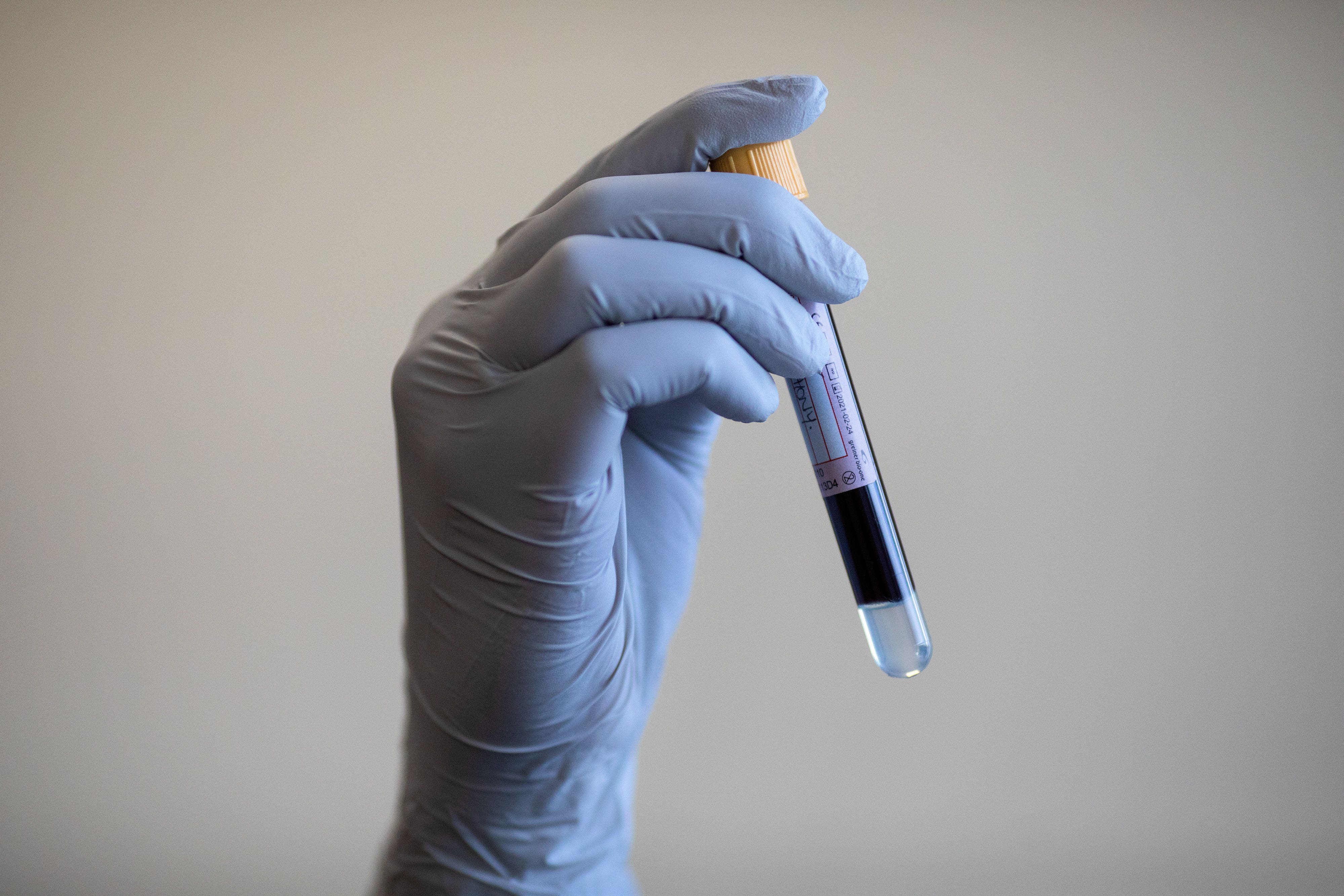Simple blood test could detect cancer risk in type 2 diabetics
Type 2 diabetics face a higher risk of obesity-related cancers such as breast, kidney, uterus, ovarian and thyroid
A simple blood test could one day be used to help identify people with type 2 diabetes who are at risk of developing certain cancers, a study has suggested.
Pinpointing patients at a higher risk would allow for targeted monitoring and early detection of cancer, researchers said.
Type 2 diabetics face a higher risk of obesity-related cancers such as breast, kidney, uterus, ovarian and thyroid, as well as gastrointestinal cancers and multiple myeloma, a type of blood cancer.
Danish researchers suggest this may be down to chronic low-grade inflammation, which is common in obese people and in those with type 2 diabetes.
To explore this further, the team analysed levels of immune system proteins known as proinflammatory cytokines in 6,466 people involved in the Danish Centre for Strategic Research in Diabetes (DD2), an ongoing study of patients with newly diagnosed type 2 diabetes.

Levels of small proteins known as interleukin-6 (IL-6) and tumour necrosis factor-alpha (TNF-alpha) were measured at the start of the study, as well as high sensitivity C-reactive protein (hsCRP), a protein made by the liver which increases with inflammation in the body.
Patients were grouped into three categories based on these levels – low, middle and high – and followed for a median of 8.8 years, during which 327 developed obesity-related cancer.
The study found IL-6 levels were associated with higher obesity-related cancer risk.
Mathilde Dahlin Bennetsen, of the Steno Diabetes Centre Odense in Denmark, said: “Understanding which individuals are at higher risk for these cancers would allow for more targeted and effective monitoring and early detection, potentially improving outcomes through earlier intervention and personalised treatment.
“In future, a simple blood test could identify those at higher risk of the cancers – however, further research is needed to determine if testing would improve early detection and management of these cancers.”
She added that the findings, which will be presented at the European Association of the Study of Diabetes in Madrid next month, highlight the importance of regular check-ups for diabetes patients.
“Understanding that higher levels of inflammation can indicate a greater risk of certain cancers highlights the importance of regular check-ups and effective diabetes management,” Ms Bennetsen said.
“Maintaining a healthy lifestyle and adhering to treatment plans can potentially help manage inflammation and reduce cancer risk.”
Dr Lucy Chambers, head of research communications at Diabetes UK, said: “Type 2 diabetes is a serious condition – caused by a mix of factors, including age, body weight and genetics – which increases the risk of a range of life-limiting health complications, including certain types of cancer.
“With cancer now the leading cause of death among people with diabetes, developing simple and effective ways to help doctors identify those at high risk earlier, and intervene sooner, could save countless lives.”
Bookmark popover
Removed from bookmarks